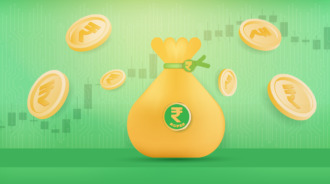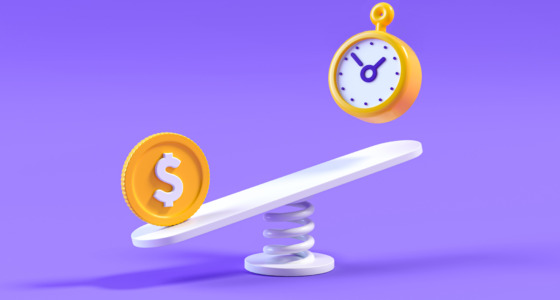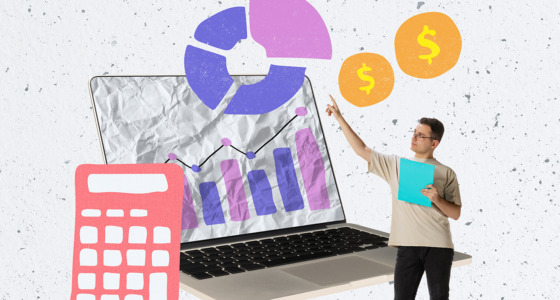

The Indian market has been attracting the attention of investors around the world for many years. Analysts predict that India can become the main engine of the global economy in the coming years. Over the last decade, the average annual growth rate of the MSCI India Index was 13.2% against 8.9% for MSCI Emerging Markets, an index of emerging markets’ stocks.
If you’re interested in online trading in India, there are a few things you should know before getting started. Here’s a quick overview of how online trading works in India.
Step 1: pick what assets you want to trade
There are many ways to do online trading as an investment in India. These include trading stocks, commodities, crypto, Forex, and more. Each asset has unique characteristics and trading rules. They require high levels of skill and offer different risks. Let’s find out more about these before you start trading.
Share trading
In general, trading in the stock market is all about buying and selling stocks. Share trading allows investors to make returns from the fluctuations in a company’s share price. When you trade, you don’t own any shares, and you don’t get a stake in the company.
There are two different ways to trade in the stock market — intraday and regular (in India, regular trading and investing are perceived equally.) In intraday trading, there is no delivery of shares, so the trader doesn’t receive ownership rights. A buy trade is offset by a sell order within one trading day, and sold shares move out of the trader’s demat account. Regular trades have settlements over days or even weeks.
Commodity trading
In India, commodities are traded in energy, metals, and agricultural products. All of them are traded through futures contracts.
In these types of trades, there are two major exchanges that traders use when investing their funds: Multi Commodity Exchange (MCX) and National Capital Derivatives Exchange (NCDEX).
Crypto trading

In India, no one explicitly forbids people from trading in cryptocurrencies unless they are considered legal tender. Since crypto trading is legal in India, you can use a cryptocurrency exchange such as Wazirx, CoinDCX, Binance, or ZebPay for crypto trading.
Forex trading
In India, futures is a more popular way to trade currencies than cash (spot market). Currency futures in India are cash-settled, which means that there’s no physical delivery of the currency on the expiration day.
The Indian government has placed severe restrictions on how individuals can trade in the Forex market. Generally speaking, buying and selling in the foreign exchange market is a legal activity, as long as transactions are made in pairs that include the Indian rupee (INR).
Also, if you trade through a broker that provides access to trading on exchanges located within India (NSE, BSE, and MCX-SX) and enables trading currency derivatives, Forex trading is absolutely legal.
CFD trading
CFD trading is a type of derivatives trading that allows you to speculate on the price movement of underlying assets without actually owning the asset.
SEBI hasn’t introduced a licensing system for CFD providers. This means that there are currently no regulated firms based in India, and users cannot obtain legal protection when trading CFDs.
Indian residents and traders should explore the options available to them in terms of offshore providers.
Step 2: choose your broker
How to start online trading in India? First of all, choose a broker. There are a few things to consider when choosing a broker, such as their fees, commissions, and the types of financial instruments they offer. You should only deal with reputable brokerages that are regulated by the Securities and Exchange Board of India (SEBI).
Step 3: create an account and deposit funds
Different accounts involve trading with different assets.
- If you are planning to trade stocks, you need a trading account. A trading account allows you to buy and sell securities in a convenient and secure way. In India, trading and investing in stocks are the same thing, so opening a demat account is necessary. A demat account allows holding and viewing shares in an electronic format.
- Opening an Equity trading account is the right choice if you want access not only to equities, futures, and options but also to currency derivatives.
- To start trading commodities, you need to set up a commodity account and link a bank account.
- To start trading crypto, you should open an account at a crypto/Bitcoin exchange.
Once the account is open, you need to transfer funds into your account. There are three different ways to do this: using payment gateways, using an NEFT/RTGS facility, or paying by margin check or credit card through your broker’s website. The option depends on your broker.

Step 4: make your first trade
To increase your chances of success in online trading, you need to have a good understanding of the markets. When it comes to online trading, there are two main types of analysis that you can use to make decisions about your trades – fundamental analysis and technical analysis.
Fundamental analysis looks at the underlying factors that could affect the price of an asset, such as economic news or company reports. Technical analysis, on the other hand, uses historical price data to try and identify patterns that could give clues about future price movements.
Conclusion
Online trading can be a great way to get income, but it’s also a risky activity. So, make sure you understand the risks before you start trading. Always remember to set limits and have realistic expectations. If you do this, you’ll be on your way to becoming a successful online trader.









